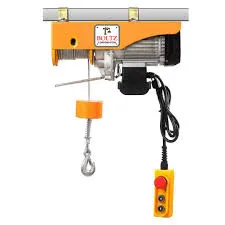


Understanding Crane Scale Price Factors and Considerations
Crane scales are essential tools in various industries, especially in construction, shipping, and logistics. They are designed to measure the weight of heavy loads suspended from a crane or similar lifting equipment. As with any specialized equipment, the price of crane scales can vary significantly based on several factors.
One of the primary determinants of crane scale price is its capacity or maximum weight it can handle. Scales designed for lighter loads are generally more affordable, while those with high capacity, capable of lifting several tons, tend to be more expensive. For instance, a simple digital crane scale that can handle 1,000 pounds may cost a few hundred dollars, whereas heavy-duty models with capacities of 10,000 pounds or more can reach into the thousands.
Another crucial factor influencing crane scale price is the technology used in its design. Traditional mechanical scales are often less expensive due to their simpler construction and fewer electronic components. However, modern digital crane scales, which offer enhanced precision, features like wireless connectivity, and advanced data recording capabilities, command higher prices. Buyers must weigh the benefits of these advanced features against their specific needs.

Durability and build quality also play significant roles in determining crane scale prices. Scales made from high-quality materials designed to withstand harsh working environments, such as extreme temperatures, moisture, and corrosive substances, typically come at a premium. In industries where scales are subjected to rough handling or outdoor conditions, investing in a more robust model can lead to cost savings in repairs and replacements over time.
Additionally, the reputation of the manufacturer can affect pricing. Well-known brands with a proven track record of reliability and accuracy often charge higher prices, as their products are seen as a long-term investment. Conversely, lesser-known brands may offer lower prices, but thorough research is necessary to ensure their products meet industry standards and regulations.
Lastly, additional features, such as programmable functions, remote displays, and integration capabilities with existing equipment, can impact the overall cost of crane scales. While these features may enhance functionality, they also contribute to a higher price point.
In conclusion, when evaluating crane scale prices, it’s essential to consider factors such as capacity, technology, durability, brand reputation, and additional features. By understanding these elements, buyers can make informed decisions that align with their operational needs and budget constraints, ultimately ensuring they select the right crane scale for their applications.



